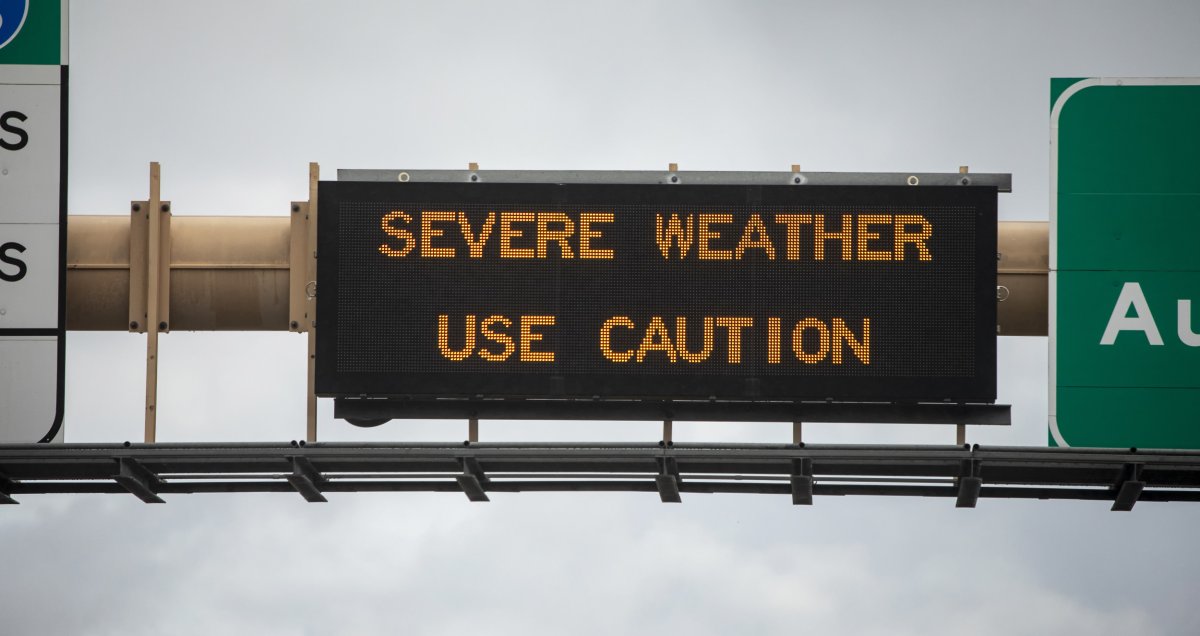Atmospheric rivers are likely to become worse and arrive in closer succession, scientists predict.
The phenomenon—defined as warm corridors of tropical moisture that travel through the atmosphere—battered the state of California nine times through the 2022 and 2023 winter. The storms caused extreme flooding, power outages and landslides across the state.
This is the longest period that atmospheric rivers have continuously dumped on the state in 70 years, a new study from the Lawrence Berkeley National Laboratory reported.
Atmospheric rivers are likened to rivers in the sky, and when they make landfall, they cause torrential rain and sometimes snow fall.

Scientists already know a lot about atmospheric rivers and how they occur, however this relatively new phenomenon of more intense rivers occurring in quick succession is not widely studied. Researchers at the Lawrence Berkeley National Laboratory set out to learn more about the subject and the extreme weather they cause. Their findings are published in Communications Earth and Environment.
"Atmospheric river (AR) events are likely to become worse with rising temperatures," Yang Zhou, Earth and Environmental Sciences Area (EESA) scientist and lead author of the publication, said in a statement. "By studying how and why more dense events occur, we can try and help California be better prepared."
Climate change is likely to blame for the increase in the sky rivers in the West. This is because moisture content in the air will only increase as the surface temperature becomes warmer.
And as they become more commonplace, it is important for California to have more preparations in place, the study notes.
Read more: Emergency Funds: How to Build One and Where to Keep It
To reach their findings, the researchers calculated how many AR days the West Coast experienced over 2022 and 2023.
They found that intense atmospheric events are more likely to occur when there is a dense cluster, meaning, when there is a relatively high number of ARs in a short space of time.
"This means that not only is there less time available for the land to recover between events but that the individual events themselves are more extreme. This makes the overall effect of densely distributed AR clusters even more severe," Zhou said.
The researchers also analyzed how the density of atmospheric rivers affected the aftermath, and found the denser the clusters, the more damage was caused. This is because land takes time to recover, the scientists note. And when there is lots of rain in a short space of time, there is no recovery time.
They also found that when conditions had lots of pressure and winds, there was a higher chance of more clusters in the warming climate.
Before this pattern of intense rainfall started, California had been suffering from prolonged drought conditions. In 2023, however, the state's drought status was completely lifted.
The beginning of 2024 also brought a slew of ARs descending on the state. It remains to be seen whether this is going to be an ongoing pattern, however there is no doubt that they are set to become more commonplace.
A study from February found that they are set to increase in the U.S. as a whole as global warming continues.
Do you have a tip on a science story that Newsweek should be covering? Do you have a question about Atmospheric Rivers? Let us know via science@newsweek.com.
Uncommon Knowledge
Newsweek is committed to challenging conventional wisdom and finding connections in the search for common ground.
Newsweek is committed to challenging conventional wisdom and finding connections in the search for common ground.
About the writer
Robyn White is a Newsweek Nature Reporter based in London, UK. Her focus is reporting on wildlife, science and the ... Read more
To read how Newsweek uses AI as a newsroom tool, Click here.








